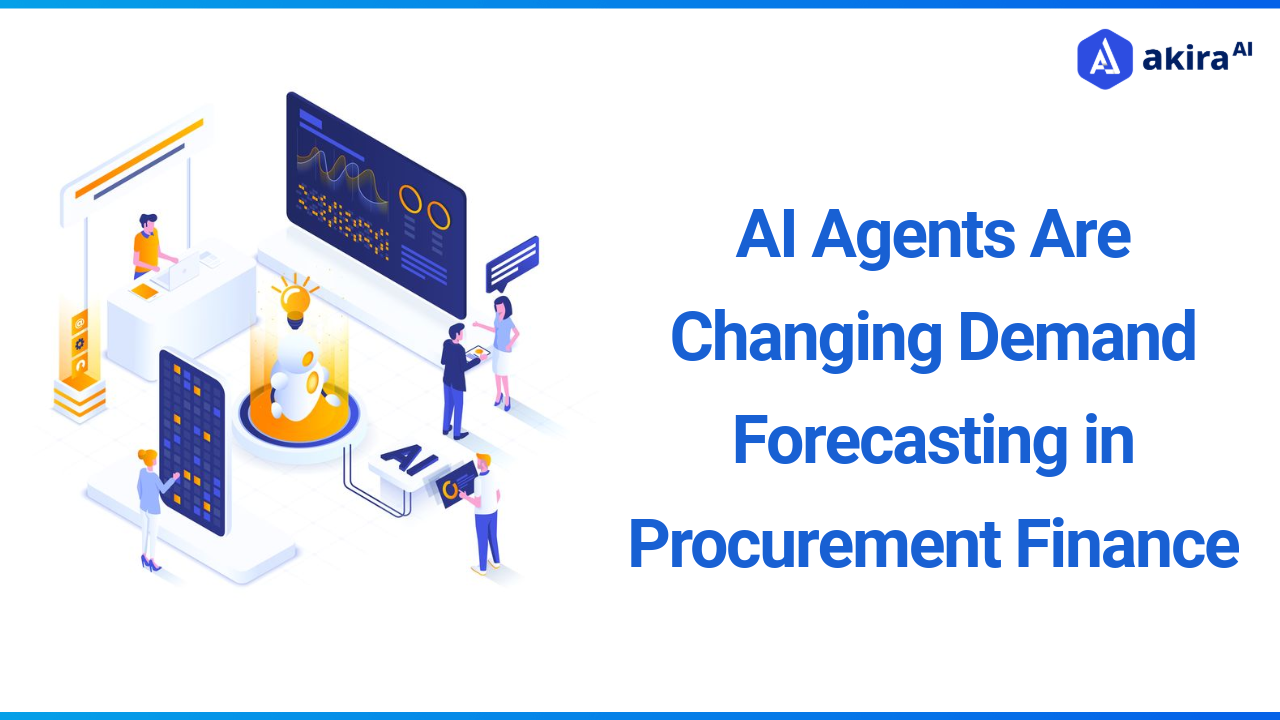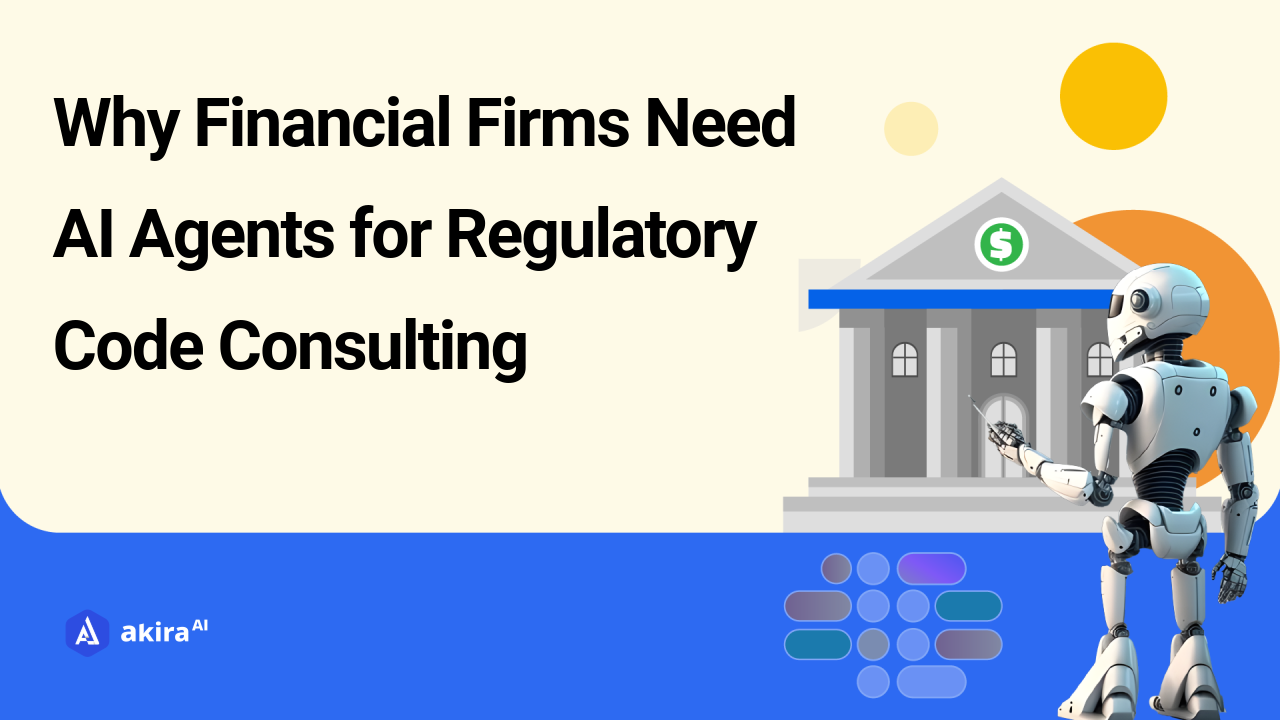Key Insights
-
Agentic AI Enhances Customer Service and automates tasks, reduces wait times, and improves personalization.
-
Boosts Efficiency & Compliance and Streamlines operations while ensuring regulatory adherence.
-
Rapid Adoption in Finance – Financial institutions are shifting to AI for cost reduction and better decision-making.

In today’s fast-paced financial world, customer service plays a crucial role in shaping customer loyalty and enhancing business performance. One of the most significant challenges financial institutions face is delivering personalized and effective customer service while managing large volumes of inquiries efficiently. Enter AI agents — an innovation transforming the landscape of contact centres in the finance sector.
This blog will explore the role of AI agents in finance contact centres, how they differ from traditional systems, and why they are becoming the future of customer support. We’ll also look at key technologies in the space, the advantages of AI over traditional methods, and successful real-world implementations.
What is the Finance Contact Center?
A Finance Contact Center is a customer service centre that handles financial inquiries, transactions, and support for banks, insurance companies, investment firms, and other financial institutions. It assists customers with account management, payments, loans, credit services, fraud prevention, and dispute resolution.
These centres ensure compliance with financial regulations and help customers with their financial needs through various communication channels. Their primary goal is to provide reliable financial assistance, maintain security, and ensure customer satisfaction.
Types of Finance Contact Centers
-
In-house Contact Centers – Operated by financial institutions themselves.
-
Outsourced Contact Centers – Managed by third-party service providers.
-
Omnichannel Contact Centers – Offer support via phone, email, chat, social media, and self-service portals.
Key Concepts of Finance Contact Center
AI agents work using several key concepts that empower them to operate autonomously and effectively in a finance contact center environment:
Customer Interaction Management: Handles inbound and outbound communications through phone, email, chat, and social media to assist customers with financial services.
Intelligent Call Routing & IVR: Uses automated systems to direct customer inquiries to the right department or agent based on their needs, reducing wait times.
Compliance & Security Systems: Ensures all interactions follow financial regulations (KYC, AML, GDPR) while maintaining data privacy and fraud prevention measures.
Data & Customer Relationship Management (CRM): Stores customer history, transactions, and preferences to provide personalized support and improve service efficiency.
Analytics & Reporting: Tracks performance metrics, customer satisfaction, and service trends to optimize operations and enhance decision-making.
Traditional Way of Handling Customer Queries in Finance
Traditionally, customer service in finance contact centres was largely human-driven. Agents would receive calls or messages, manually input data, and perform tasks to assist customers with their financial needs. While this approach works, it comes with several limitations:
-
High Operational Costs: Human agents are costly to employ, train, and retain. They also need time off, sick leave, and other benefits.
-
Slow Response Times: Customers often experience long wait times, especially during peak hours. This leads to frustration and reduced customer satisfaction.
-
Limited Availability: Human agents are available only during specific hours. Customers may not receive support outside these hours or have to wait until the next day.
-
Inconsistent Quality of Service: Human agents can vary in their ability to resolve customer queries, leading to inconsistencies in customer service.
-
Scalability Issues: During periods of high demand, such as the end of the fiscal year or holiday season, the volume of calls can overwhelm human agents, resulting in increased response times or mistakes.
Impact on Customers Due to Traditional Way of Handling Queries
The traditional method of handling customer queries in finance contact centres often results in several challenges for customers:
-
Delayed Service: Long wait times and slow response times can frustrate customers, leading to dissatisfaction and potential churn.
-
Poor Customer Experience: Human agents may struggle to handle complex queries or provide timely solutions, leading to inconsistent customer experiences.
-
Lack of Personalization: While some customer service representatives try to personalize their service, it is problematic to scale this with human agents alone. Customers may feel like they’re just another number without tailored advice.
-
Limited Availability: Customers might not get the support they need during off-hours or holidays, leading to a decrease in overall satisfaction and trust.
Akira AI: Multi-Agents in Action
Akira AI can analyze financial data at multiple levels to enhance customer service. The architecture of such a solution typically involves several layers:
-
Data Sources: The system's foundation, where various types of data are collected, including customer interactions, profiles, knowledge bases, and external financial data. This information is crucial for understanding customer needs and providing accurate responses.
-
Intent Recognition & Sentiment Analysis Agents: The Intent Recognition Agent determines the purpose behind a customer’s inquiry, ensuring it is routed to the right department. The Sentiment Analysis Agent evaluates the customer’s emotions and satisfaction levels, helping agents tailor their responses accordingly.
-
Master Orchestrator Agents: Acts as the central control unit, managing the flow of data between different agents. It ensures smooth coordination between speech recognition, sentiment analysis, intent recognition, and recommendation processes, leading to efficient and effective customer service.
-
Compliance Agents: Review customer interactions to ensure they align with financial regulations and company policies. This helps in preventing legal risks, ensuring security, and maintaining trust in financial transactions.
-
Final Interaction Summary & Reporting Agent: After each customer interaction, the Reporting Agent compiles data from all agents to generate performance reports and insights. The Final Interaction Summary provides agents and management with key takeaways and recommendations for improving future customer interactions.
Prominent Technologies in the Space of AI Agents
Several technologies are driving the rise of AI agents in finance contact centres. These include:
-
Artificial Intelligence (AI) & Chatbots: AI-powered chatbots handle routine queries like account balances and payment processing, reducing agent workload. They also assist human agents by suggesting responses and predicting customer needs.
-
Speech Recognition and Natural Language Processing (NLP) Convert spoken language into text, enabling voice-based interactions and improved call routing. NLP helps understand customer intent, making self-service options more efficient.
-
Customer Relationship Management (CRM) Systems: Stores customer data, interaction history, and preferences to provide personalized service. CRM integration ensures a seamless experience across different communication channels.
-
Agentic Process Automation (APA): Automates repetitive tasks like data entry and transaction verification, reducing errors and processing time. This improves efficiency and ensures compliance with financial regulations.
-
Omnichannel Communication Platforms: Integrates phone, email, chat, and social media to offer a seamless customer experience. Agents can access unified customer data, enabling faster and more effective resolutions.
How AI Agents Supersede Other Technologies
-
Enhanced Automation & Efficiency: AI agents handle complex queries, automate repetitive tasks, and process large volumes of customer interactions faster than traditional systems like IVR and RPA.
-
Intelligent Decision-Making: Unlike basic rule-based systems, AI-driven sentiment analysis, intent recognition, and predictive analytics allow personalized responses, improving customer satisfaction.
-
Seamless Omnichannel Integration: AI Teammates provide real-time assistance across multiple channels, ensuring consistency in customer interactions, whereas legacy systems struggle with cross-platform communication.
-
Proactive Fraud Detection & Compliance: AI continuously monitors transactions for anomalies, identifying fraud risks and ensuring regulatory compliance more effectively than manual reviews or static rule-based tools.
-
Continuous Learning & Adaptation: Unlike traditional technologies, AI agents improve over time using machine learning, adapting to customer behaviour and financial trends for better decision-making.
Why Financial Institutions Are Shifting to AI Agents
Financial institutions are increasingly adopting AI agents over traditional chatbots and APA due to their ability to:
Enhance Customer Experience with natural, human-like conversations and personalized financial guidance.
Improve Operational Efficiency by automating complex workflows beyond simple rule-based automation.
Ensure Compliance and Risk Mitigation by continuously learning and adapting to new regulations and fraud patterns.
Offer Proactive Engagement by predicting customer needs and providing tailored financial recommendations.
Reduce Costs by minimizing dependency on large human support teams while maintaining high service quality.
Successful Implementations of AI Agents
Several financial institutions have successfully implemented AI agents in their contact centres, significantly improving customer service efficiency and satisfaction. Here are a few notable examples:
Bank of America’s Erica
Bank of America introduced Erica, an AI-powered virtual assistant, to help customers manage their finances. Erica can handle various tasks, including checking balances, paying bills, transferring funds, and providing financial advice. The AI assistant uses natural language processing and machine learning to understand customer queries and deliver personalized responses.
HSBC’s AI Chatbot
HSBC launched an AI chatbot to assist customers with banking services, from checking account details to providing updates on loan applications. The chatbot can handle simple queries automatically and escalate more complex issues to human agents. HSBC’s chatbot has successfully reduced response times and improved customer satisfaction.
Lloyds Banking Group’s Chatbot
Lloyds Banking Group deployed an AI-powered " Cora " chatbot to help customers navigate banking services. Cora can handle over 150 tasks, including answering questions, updating personal information, and assisting with banking transactions. The AI system helps reduce customer wait times and increases operational efficiency.
Next Steps with AI Agents
Talk to our experts about implementing compound AI system, How Industries and different departments use Agentic Workflows and Decision Intelligence to Become Decision Centric. Utilizes AI to automate and optimize IT support and operations, improving efficiency and responsiveness.


